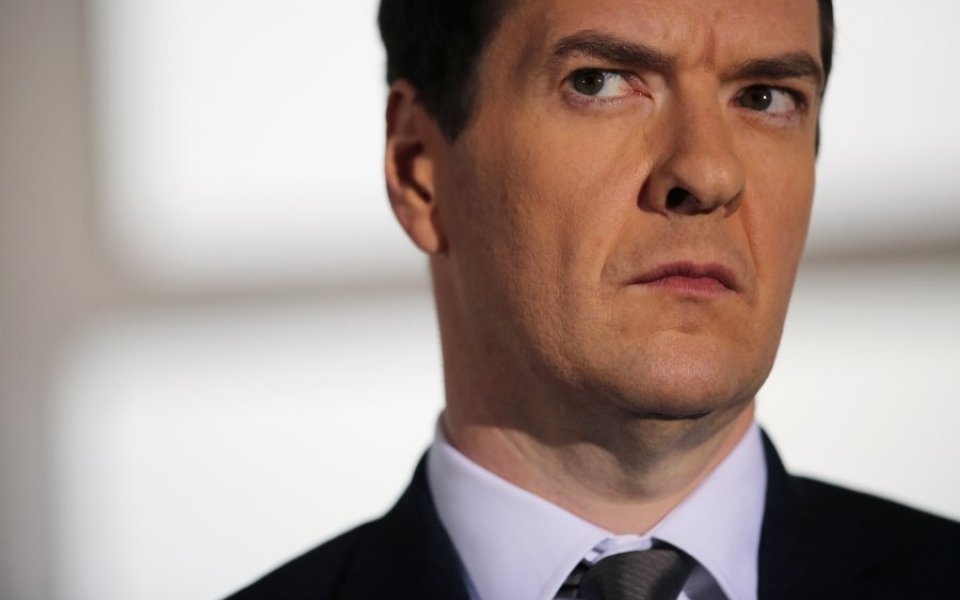George Osborne’s National Living Wage is a tax on employers hiring low-skilled workers

A tip for the chancellor: if you want to save some easy money, slash your own propaganda budget. In London, we seem to be inundated with bus station ads championing what many consider to be misguided housing policies and by others highlighting the introduction of the new “National Living Wage” of £7.20 from April.
It is understandable that George Osborne wants us to know about this new action on the minimum wage. Declaring that the government will raise people’s wages with a stroke of a pen must seem an easy way to show your compassion. It’s also far easier to denounce businesses for “not paying enough” than to undo the years of bad housing, energy and childcare policies which inflate the cost of living.
But in just over a month and a half, real businesses and families will have to deal with the consequences. The minimum wage for over-25s will jump, and then continue to rise until it is linked to 60 per cent of median earnings by 2020. Those who blithely say firms must “improve productivity” – as if the government has better knowledge about improving workforce productivity in each individual business than the managers and owners themselves – will have their confidence put to the test.
Of course, we should not expect a big bang of repercussions. Firms will adjust over time by changing their pricing strategies, hiring policies, hours, training and other perks. Some will move towards more flexible ways of managing labour costs, whether zero hours contracts, agency work or “unpaid internships”.
The Office for Budget Responsibility forecasts that 60,000 fewer people are likely to be employed by 2020 as a result of this policy, but the margin of error is large. The other big unknown is what the long-term consequences of politicising wage setting in this way might be. Will a future chancellor take the hit of sanctioning the slashing of the minimum wage during a recession if median earnings fall sharply, given they are now responsible?
New research from the Social Market Foundation (SMF) shows detailed analysis of the types of businesses and individuals affected. It suggests Osborne is taking a huge risk.
The new policy will hit the private sector hardest, with around 25 per cent of private sector workers affected by 2020. Those industries severely hit will include the retail, wholesale and hospitality sectors.
Both these points are important. The public sector can raise taxes to fund wage hikes. Private sector firms, on the other hand, have to sell goods and services. There is no easy way out. The most severely affected businesses also happen to be in fiercely competitive markets – and economic theory suggests the negative consequences of minimum wage hikes on unemployment are much more likely when firms have low levels of market power.
The final insights from the SMF report are more important still. Consider these five facts and then piece them together. Around half of workers in the most affected workplaces are part-time; 28 per cent of those immediately affected work in jobs requiring no formal qualifications, such as labourers and cleaners; 40 per cent of those employees affected have qualifications only up to GCSE or equivalent; over 50 per cent affected are young (25 to 29) or old (over 50); and, finally, severely affected workplaces are currently much less likely to provide training to staff.
The conclusion to draw is that the minimum wage hike will affect a vast number of low-skilled workers towards the start and end of their careers, many of whom work less than full time anyway, and in industries which are competitive. It will impact jobs which give many people purpose, and at a young age help instil good work habits and a range of transferable skills. Theory and intuition suggest raising wages through government fiat in these circumstances could have a big impact on employment chances.
Think of it this way: if the chancellor stood up in Parliament tomorrow and declared he wanted to introduce a new tax targeted at businesses who employ low skilled workers to subsidise those workers’ wages, it would be dismissed as mad. But his “National Living Wage” in effect does the same thing. Is that really sensible?